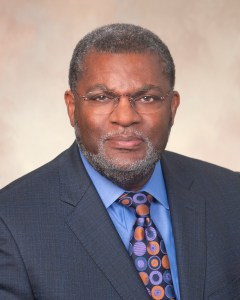 Convincing national foundations to make significant investments in organizations based in the Mississippi Delta has never been an easy task, but several factors fuel the heightened interest in directing philanthropy to this region and elsewhere across the Deep South.
Convincing national foundations to make significant investments in organizations based in the Mississippi Delta has never been an easy task, but several factors fuel the heightened interest in directing philanthropy to this region and elsewhere across the Deep South.
The first is that inequality – particularly economic inequality – has become a priority focus for some of America’s largest private foundations, including the Bill and Melinda Gates Foundation, Ford Foundation and W.K. Kellogg Foundation.
The second is the simple fact that it will be impossible to close the widening gap in income and wealth inequality in the United States without making substantial investments in the region with the largest concentration of persistently impoverished communities.
One third of the nation’s poorest counties and parishes are located in four Southern states: Alabama, Arkansas, Louisiana and Mississippi. Historically, the philanthropic sector’s investment in this region has been shockingly sparse.
“As the South Grows: On Fertile Soil” by the National Committee for Responsive Philanthropy (NCRP) and Grantmakers for Southern Progress indicated that the Mississippi Delta and the Black Belt region of Alabama benefitted from $41 in foundation funding per person between 2010 and 2014, compared to the national funding rate of $451 per person and the New York state rate of $995 per person.
The report determined several reasons for the funding gap, including the perception that these places lacked organizations and people with the expertise and capacity to do effective work.
For some in the region, these circumstances have presented a maddening Catch-22. We need the help, but cannot get it because we have been perceived as incapable of effectively using the assistance provided.
In my organization’s 23 years of work in the Mid South, we have learned a lot about what it takes to bring investment to disenfranchised people and places, which in turn fosters better education, housing, health and employment opportunities.
Some of our strategies align with recommendations in the NCRP report, especially the following two:
Understand context. Build authentic, transformational relationships
Improving conditions in persistent poverty communities in the South requires being intentional about working with people of color, particularly African Americans.
As a provider of financial services in the Mississippi Delta, we know that a primary reason so many black residents are mired in poverty has been because they were not perceived as viable customers by banks. Historically, Delta banks have served the interests of owners, shareholders and other privileged people. Over the years, some of these banks were absorbed into larger, regional banks, but the banking practices and community participation patterns remained the same. Black customers were never part of setting priorities and likely could not take advantage of personal relationships with bank staff to gain more favorable terms or outcomes.
In making the decision to open credit union branches in small towns across the region, we knew we had to build relationships with people the banks had not served. Since HOPE is a credit union, not a bank, our members are the owners and can offer input into our priorities. Our diverse staff is well populated with people who live in the communities that we serve.
In a four-town cluster in the Mississippi Delta where HOPE opened four branches, over a period of less than a year, we more than tripled the number of accounts and loans provided in these towns compared to the prior bank and now serve nearly half of the households in the area. When one of our staff members asked a man why he opened an account with us, he related an experience about receiving a postcard from HOPE and feeling welcomed. “I had to join; I was invited.”
Make long-term, flexible investments of capital, time and capacity
As we have opened branches in small towns, we have strengthened our relationships with the local elected officials, business people and residents. We recognized that, though town leaders and residents had identified needs that could be addressed with public, private and philanthropic resources that are readily accessible in more affluent places, they often lacked the staff and expertise to secure the needed support.
In response, we developed the HOPE Small Town Partnership, an initiative supported by the USDA, Delta Regional Authority and private donors. Through this effort, we have assembled a team to help local leaders and residents develop comprehensive development strategies. Their priorities include affordable housing, healthy food options and community facilities such as health centers and schools – the elements that are required for people in any place to prosper.
National foundations that follow similar strategies will find success in the Deep South. We offer fertile ground for growing a more equitable economic system. Steadfast work by advocates has shown that people in places like the Mississippi Delta and the Alabama Black Belt can prosper when they are equipped with the right tools.
I urge funders to take heed of the recommendations put forth by NCRP and fuel the kind of change that has been a long time coming to this severely distressed, but incredibly promising region.
Bill Bynum is CEO of HOPE, a credit union, loan fund and policy center dedicated to improving lives in one of the nation’s most persistently impoverished regions. He also serves on NCRP’s board of directors.